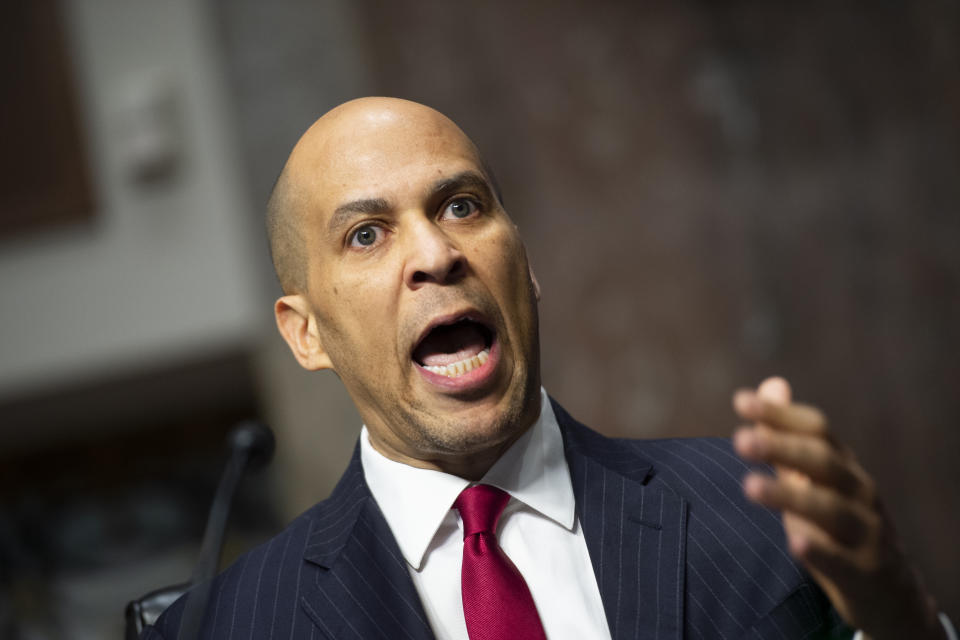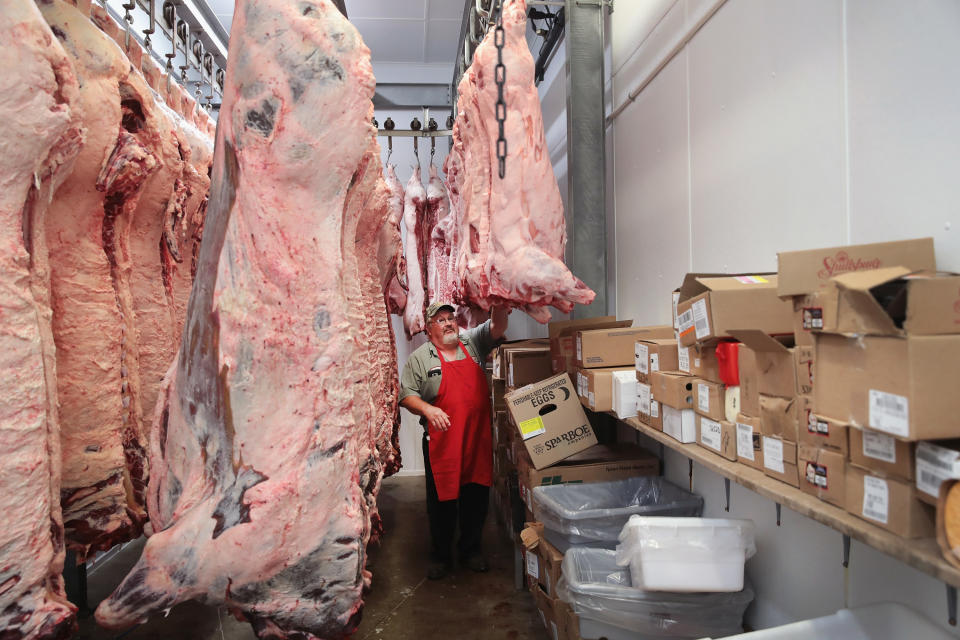Booker goes off on meat companies: 'A perversion of the industry'
The coronavirus pandemic is exposing major weaknesses and problems in the meatpacking industry, according to Sen. Cory Booker (D-NJ).
“This is not about feeding America’s need for meat,” Booker said on Yahoo Finance’s On the Move (video above). “This is about a perversion of the industry that now is putting workers at risk, putting our ecology at risk, and putting our economy at risk as well.”
Booker also accused large meatpacking companies of monopolistic practices and depriving farmers of consumer dollars, calling it “unacceptable” and an “affront to all the principles that we preach.”

‘My bill actually calls for putting billions of dollars directly to farmers’
In December 2019, Booker introduced the Farm System Reform Act, which would phase out factory farming and implement stricter environmental standards. The bill had been shelved until Booker reintroduced it earlier this week with support from Sen. Elizabeth Warren (D-MA) and Rep. Ro Khanna (D-CA).
“My bill actually calls for putting billions of dollars directly to farmers, helping them transition to more sustainable efforts that actually treat them with better profits and better well-being and help our ecology,” Booker said. “There’s a much better way to go.”
He added: “I mean, God, the life of contract farmers right now is so dire, where they’re living horribly in debt and really more like a sharecropping model, while these corporations make so much profit off of them and their international corporate conglomerates.”

‘Our food systems are massively broken in America’
The senator highlighted that four companies control nearly 85% of the U.S. beef market, adding that just a few large multinational corporations are able to “exert a stranglehold over supply.”
“Our food systems are massively broken in America,” Booker said. “I went out to the Midwest a couple of years ago to meet with Republican farmers, who were all saying the same thing. The monopolistic practices of these large multinational corporations have driven down their ability to make a living. In fact, the consumer dollar that we spend when we buy our groceries or our food, the farmers have seen a precipitous drop.”

For every dollar that consumers spent on food in 2018, only 7.8 cents went to farmers, according to the U.S. Department of Agriculture (USDA).
“It’s being gobbled up by these monopolistic firms that are also doing this large-scale corporate agriculture that’s destroying our ecology, putting animals in conditions where we’re overusing antibiotics… and hollowing out rural America because you see the loss of family farmers in this country in extraordinary ways,” Booker said.
‘We’re hurting farmers, hurting consumers, hurting our environment’
Booker singled out companies like Tyson Foods and Smithfield Foods for producing massive amounts of animals not for American consumption. He said that this was creating environmental woes for Americans across the country.
“I’ve gone down to some of these pig farms and looked at these massive lagoons of manure that pollute rivers and streams and drinking waters,” Booker said. “I visited with communities that can’t even open their windows anymore or put their clothing out on the line. The values of their land has gone dramatically down because of these massive multinational corporations that base these toxic industries in our country and then export the goods overseas to countries that don’t have to tolerate that level of pollution and abuse.”

Booker’s bill would push a shift towards sustainable agriculture and away from factory farm conditions, which he called “breeding grounds” for antibiotic-resistant viruses like coronavirus.
“We’ve seen this in other countries with diseases spreading through cows and the like,” Booker said. “We are at risk in our country. We’re hurting farmers, hurting consumers, hurting our environment in the process. This kind of agriculture is a threat to our farmers, to our environment, to our economic well-being, as well as to consumers. And we’re already seeing that in this crisis.”
Adriana is a reporter and editor for Yahoo Finance. Follow her on Twitter @adrianambells.
READ MORE:
Union president blasts President Trump's meatpacking plant move as 'outrageous'
Coronavirus: White House promises 'cash payment' to hospitals that treat uninsured patients
Trump's farmer bailout is about to get a whole lot bigger amid coronavirus
Follow Yahoo Finance on Twitter, Facebook, Instagram, Flipboard, SmartNews, LinkedIn,YouTube, and reddit.

 money
money 
